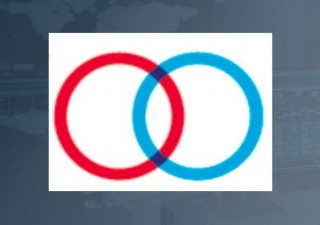RISE with the Giants
21 September 2018

More than 15,000 people from 102 countries gathered at RISE, Asia’s largest tech event, in Hong Kong from July 9-12, 2018. The event featured 316 renowned speakers including Microsoft president Brad Smith and more than 750 startups, many of which were app developers with groundbreaking ideas.
Grab Is Grabbing Everything
 The first spotlight was stolen by Hooi Ling Tan, the Singapore-based co-founder of Grab, who shared her company’s success and future with Kara Swisher, executive editor of tech magazine Recode, at the centre stage.
The first spotlight was stolen by Hooi Ling Tan, the Singapore-based co-founder of Grab, who shared her company’s success and future with Kara Swisher, executive editor of tech magazine Recode, at the centre stage.
With Swisher mentioning the US$1 billion investment in Grab from Toyota, which put Grab at a US$10 billion valuation, Tan said that Grab would no longer focus on transportation only.
“We’re striving to be Asia’s first everyday superapp that provides e-payment, food delivery, and other kinds of services in the future,” Tan said. “People nowadays don’t want to carry wallets around. They want to do everything with their smart phones, so we are just responding to their demand.”
“Would Grab get sidetracked with too many areas, which could make it forget its core mission in the first place, transportation?” asked Swisher.
“No,” Tan said. “Transportation is still the heart of Grab, with our know-how and fan base for the past six years. We are only moving forward once one side of the business is well taken care of.”
In addition to offering new services, Grab is also tapping into new undeveloped markets, including Myanmar and Cambodia. “People living in the outskirt areas of those countries have long commutes to work every day. They first walk to the train station, then fight for space in the compartment and finally take the shuttle to office. It’s really a hassle,” Tan said. “With Grab, they could just get a ride easily from their homes to work directly.”
“As those markets have more motor bikes than cars, we would consider having electronic bikes or scooters in our fleets as well,” added Tan.
Speaking of the company’s continuing success, Tan said that Grab never stops looking for partners. “Whether it is hardware like automobile manufacturers, food delivery companies, or software like technology, we keep looking out for partnerships because in order to provide the best one-stop shop experience, we cannot do everything alone.”
Perhaps due to her willingness to collaborate, Grab is a rare survivor in the cab-calling app world. “We have no idea how many competitors we have faced but we definitely are the beneficiary of the competition, even though Southeast Asia is a really tough market,” said Tan.
LINE of the Future
 Takeshi Idezawa, chief executive officer at LINE, an app designed for instant communication, including VOIP calls and video conferences, on electronic devices, revealed a lot about LINE’s present and future.
Takeshi Idezawa, chief executive officer at LINE, an app designed for instant communication, including VOIP calls and video conferences, on electronic devices, revealed a lot about LINE’s present and future.
“Japan, Taiwan and Thailand are our key markets, and we’ll maintain a dominant position there,” Idezawa says.
While many Japanese use LINE for news and comics, the company is stepping up its services to catch up with the fintech trend with LINE Pay, he says. “China’s WeChat is indeed very advanced and we certainly have a lot to learn from, but we believe we have the potential to be the best messaging service outside China. Taiwan has the most LINE Pay users, who even pay taxes with [the app]. And, they get rewards afterwards.”
Idezawa said that being able to do many things, particularly shopping, on a smartphone is good, although the majority of transactions are still done through cash outside of China.
To encourage more partnerships with merchants, small and medium enterprises will be exempt from paying the 3 to 4 percent commission to LINE for the next three years, said Idezawa.
And to further expand the use of LINE Pay, Idezawa has a unique way of promoting it.
“As LINE Pay allows users to split costs on bills, those who don’t use it will be persuaded by our users to use it in order to pay back the meal money on the spot,” he said. “Our users are therefore our ambassadors, who will help grow our fan base.”
How to Get Investment for Your Tech?
During a seminar on what it takes to enter a hugely competitive market and win, Soul Htite, founder and executive chairman at Dianrong, shared that you first need the money.
“However, I never approach banks or investors first. Rather, I would build relationships with other business partners, and that should be the daily priority of every single entrepreneur,” Htite says. “Let’s say I have a cabcalling app. I’ll develop my relationships with not only the drivers but with taxi companies, automobile manufacturers and repairmen, gas stations, car insurance companies, etc. Once you have various partnerships in place, you can show it to your funding options, proving what you have already done and how much faith other parties have in you and your product. I won’t go into a boardroom and say something like ‘Hey, just trust me with your US$200 million!’ This isn’t the way you are getting investment or the greenlight,” he added.
Everybody succeeds with failures, and Htite is no exception.
“As far as the biggest mistake I’ve ever made, well… we once had a great money-lending app, which could help many borrow money online at a low interest rate and we were all excited about it. We launched it on Facebook but the result was horrendous! We later found out the cause of the death was that people actually wanted to use it, they just didn’t want to use on social media, where others could see them in financial need,” he said. “We realized we didn’t take into account that borrowing money is a private matter and never should be shared in public so, yeah, that was a lesson to learn. Even if you have a good product, it will still be a failure if it is launched inappropriately.”
Billion Dollar Babies
Where is the next unicorn – a term used for a startup valued at over US$1 billion, typically in the software or technology sector – coming from? Hans Tung, managing partner at venture capital firm GGV Capital, has some ideas.
 “There’ll be more unicorns coming from China in the next five to 10 years. However, we can’t say that the US has come to an end in terms of innovation, because the two countries are good at different things,” Tung said. “In the future, China and the US should become more cooperative than hostile in the competition.”
“There’ll be more unicorns coming from China in the next five to 10 years. However, we can’t say that the US has come to an end in terms of innovation, because the two countries are good at different things,” Tung said. “In the future, China and the US should become more cooperative than hostile in the competition.”
Compared with the US, Tung noted an interesting scene in the Chinese technological race.
“In the US, there is currently no fierce competition between Amazon and Facebook compared with those in China, such as Tencent and Alibaba,” Tung said. “Sooner or later, though, the American giants are expected to have a similar reaction of their Chinese counterparts as all are seemingly trying to grow in similar if not the same areas.”
So as usual, are the US and China are going to dominate the tech world in the next decade? Yes, but some other countries still deserve our attention, warned Tung.
“India, Indonesia and Russia, for example, they have the potential to produce unicorns as well,” Tung said.
RISE has much more than the above coverage for those who are tech-savvy but to get the best experience, you really need to be on site. The good news is, they are returning to Hong Kong from July 8-11, 2019.






